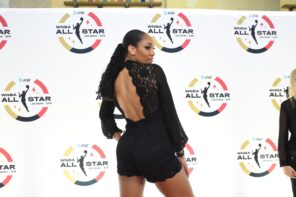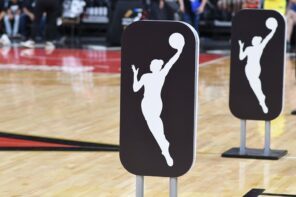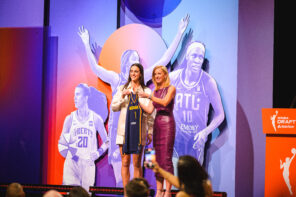When Max Abrahams and Daniel Escott announced themselves as founders of a leadership committee aimed at bringing a WNBA team to the Toronto area, it excited many a W aficionado and many a Toronto sports fan still basking in the glow of the Raptors’ NBA championship.
Official social media accounts were created, they did a much publicized interview with a Canadian media outlet in announcing the bid and they filed paperwork with the league with an intention for a team for next season.
Those efforts are now facing increased scrutiny now that the financials of one of its top investors are facing greater scrutiny.
According to the CBC, Escott ran an esports organization that went out of business and with some of its players not being paid.
They didn’t have the money, they didn’t have the investors, they didn’t have (the) cash, they just had empty promises.
–Sean Luellen, ex-marketing director for esports organizations (per CBC)
The report said Luellen had conversations to join Iceberg Competitive Esports, ran by Escott, as its marketing coordinator before doing an about-face after it was revealed the organization was not paying its participants. Luellen said it is a big problem in esports.
Other players also told the CBC they ran into the same issue with Iceberg.
I signed with them with promises of salary paid every month, to be sent to tournaments and more, which they did not fulfill.
–Kelsy Medeiros, Iceberg 2018 signee
Escott admitted that the players haven’t been paid and that they were owed between $5,000 to $10,000 after Iceberg closed operations. He attributed the issue to being stonewalled from a U.S. investor. He acknowledged that it is a common issue with…
… investors coming in, thinking they can just own something and dictate its terms without any recompense for or concern for what happens to the people in the organization.
Escott called the bid a “fluid situation” and didn’t announce any specifics such as who are its investors or financiers or a venue for the team should it be approved.
And even if the bid really does have its ducks in a row, its biggest hurdle may be convincing the WNBA. Christy Hedgpeth, the league’s COO, has said in several interviews that the league isn’t looking to expand and is focused on ensuring its current 12 teams are financially healthy.
More WNBA Toronto info: A person who works in Canadian sports reached out to me saying he was approached by the bid group, looking for his involvement. Said he was given false info by them, including generous funding that they couldn’t substantiate, and claims of MLSE’s support.
— Brady Klopfer (@BradyKlopferNBA) July 13, 2019
I feel really dumb for getting excited about and spreading this https://t.co/W8FWq40ktq
— Eric (@nemchocke) July 15, 2019




